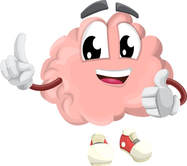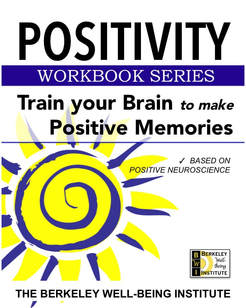Positive Attitude: Definition, Examples, & StrategiesSometimes it feels easier to be a Grumpy Gus. But ask yourself, wouldn't you rather have a positive attitude about life? If so, here's how to do it.
*This page may include affiliate links; that means I earn from qualifying purchases of products.
What Is a Positive Attitude?Technically, an attitude is something that others observe in you. So whether or not you have a positive attitude depends on how you interact with the world, and how they see you. But what they see in you is often a reflection of who you are. Are you able to see the bright side of challenging situations? Are you kind to people even when they may not deserve it? Do you smile and laugh and generally enjoy life? Well, my friend, then you likely have a positive attitude.
✓ Before we dive in though, we thought you might also be interested in taking our free well-being quiz to learn more about your personal well-being. ✓ Or, if you're a well-being entrepreneur or coach, download our Wellness Business Growth eBook to get expert tips, tools, and resources to share with your audience. Are You a Therapist, Coach, or Wellness Entrepreneur?
Grab Our Free eBook to Learn How to
|
|
There will be many times in life when we experience tough situations and tough emotions. It is helpful to explore the benefits of situations which, at first, seemed to only be negative.
|
Positive reappraisal involves cognitively reframing a negative event as more positive. In this activity, you learn how to use positive reappraisal to find the benefits of situations.
|
Don't Forget to Grab Our Free eBook to Learn How to
Grow Your Wellness Business Exponentially!
References
-Fredrickson, Barbara L. 2000. "Cultivating positive emotions to optimize health and well-being." Prevention & Treatment; Prevention & Treatment 3 (1):1a.
-Siegle, Greg J., Frank Ghinassi, and Michael E. Thase. 2007. "Neurobehavioral therapies in the 21st century: Summary of an emerging field and an extended example of cognitive control training for depression." Cognitive Therapy and Research 31 (2):235-262.
-Wadlinger, Heather A., and Derek M. Isaacowitz. 2008. "Looking happy: The experimental manipulation of a positive visual attention bias." Emotion 8 (1):121-126.
-Fredrickson, Barbara L. 2000. "Cultivating positive emotions to optimize health and well-being." Prevention & Treatment; Prevention & Treatment 3 (1):1a.
-Siegle, Greg J., Frank Ghinassi, and Michael E. Thase. 2007. "Neurobehavioral therapies in the 21st century: Summary of an emerging field and an extended example of cognitive control training for depression." Cognitive Therapy and Research 31 (2):235-262.
-Wadlinger, Heather A., and Derek M. Isaacowitz. 2008. "Looking happy: The experimental manipulation of a positive visual attention bias." Emotion 8 (1):121-126.
Are You a Therapist, Coach, or Wellness Entrepreneur?
Grab Our Free eBook to Learn How to Grow Your Wellness Business Fast!







